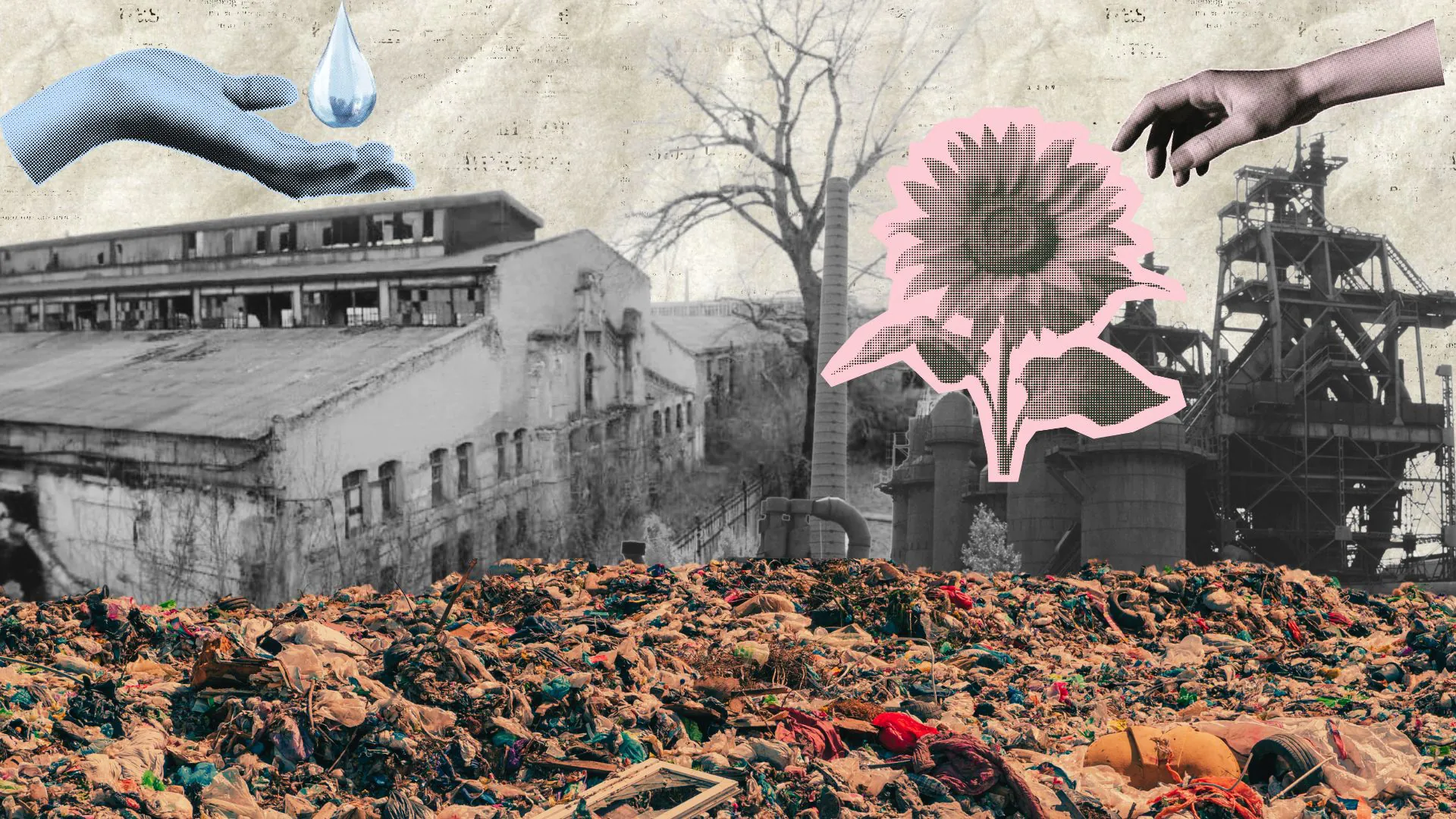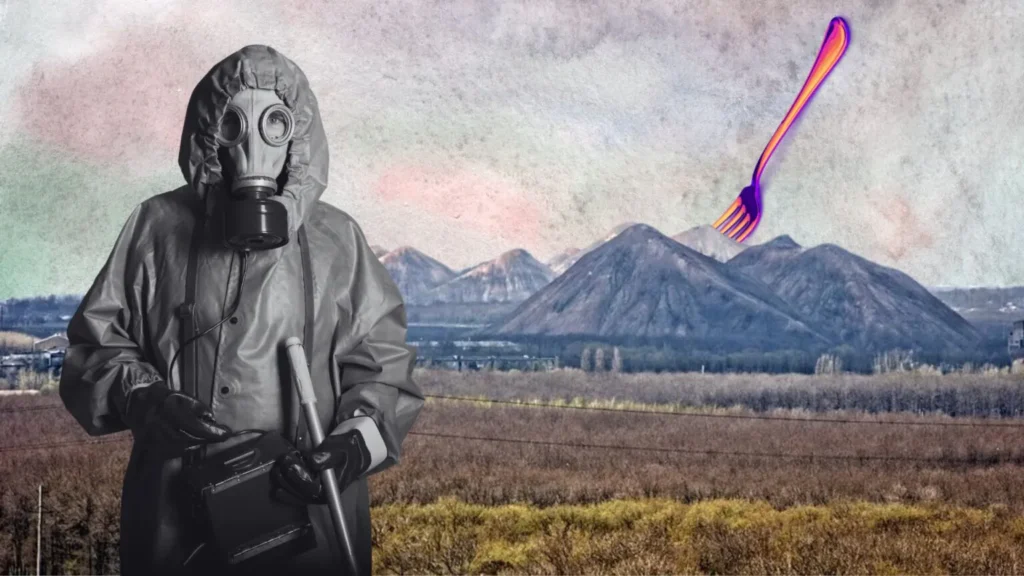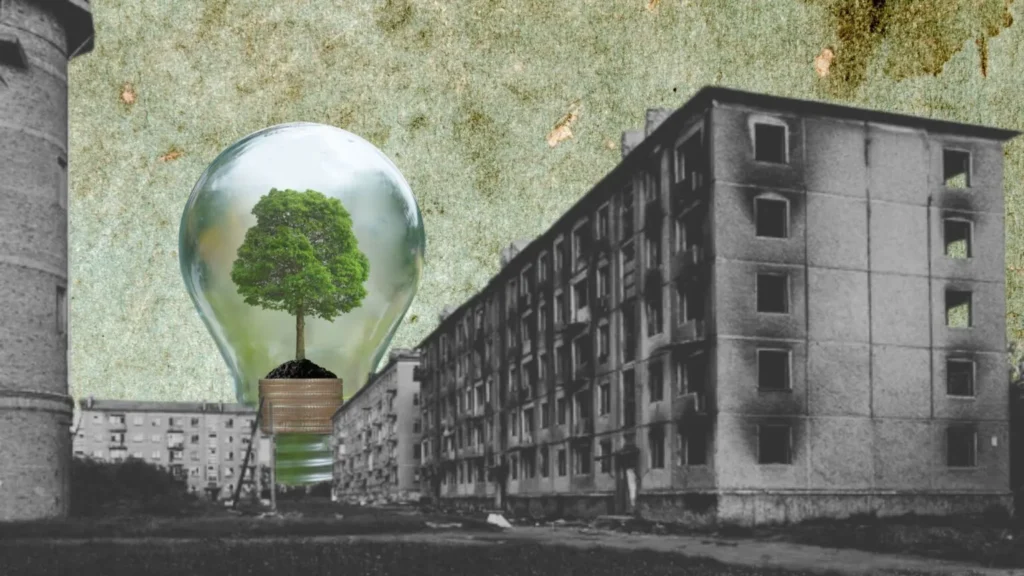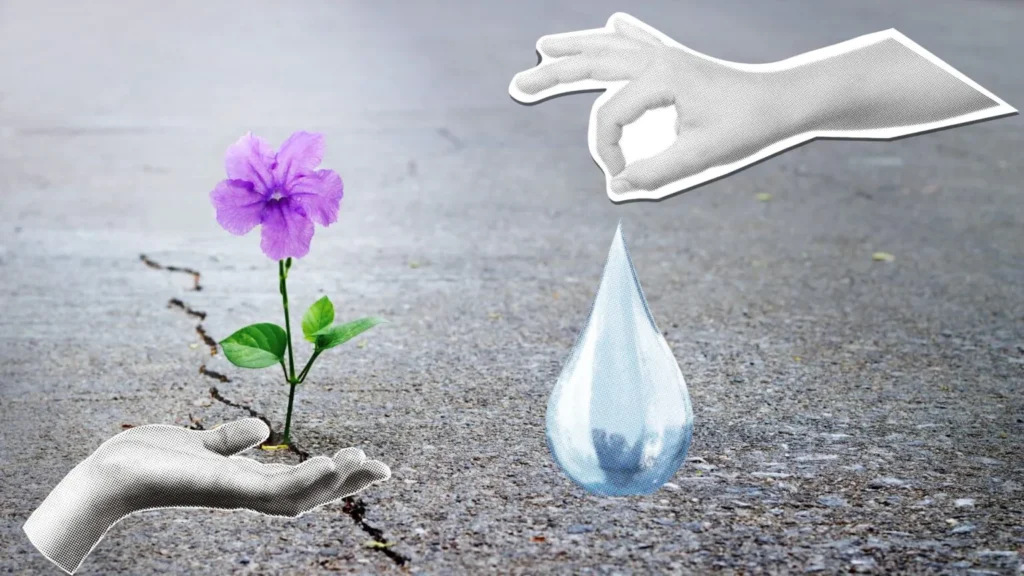

It Will be Warm in Summer: What Caused the Utilities Sector Collapse in the Occupied Territories of the Donetsk and Luhansk Regions
In the occupied part of the Donetsk region, cities are partially without heating, water and electricity. Occupation administrations blame Ukraine, while residents blame local authorities, Realna Gazeta reported.
“At the moment, we have exhausted the possibility of generating electricity,” said Ivan Prykhodko, head of the occupation administration of Horlivka, in an address to the city’s residents on 13 November.
The address was a reaction to the massive outrage of the townspeople and residents of neighbouring villages at the lack of heating and other utilities. People began to write sarcastic and angry comments on the occupation administration’s page on the Russian social media platform VK.
The resentment had been brewing for a long time, but the state of affairs in the city with the onset of cold weather and the weak reaction of the occupation authorities to it was probably the last straw.
Horlivka has experienced a communal collapse, but this frontline city is not the only one in this situation.
“The main problem is the lack of…”
“Explain to me how children can study remotely if there is no electricity all the time. And when they switch on one part of the block, there is no internet. Because the second part of the block, where the equipment is located, is immediately disconnected.
The situation is the same with water. How can consumers who have electricity use it if the pumps are located in the part of the city where the electricity is currently disconnected? And it turns out that consumers, regardless of whether they have electricity or not, have no water for weeks.
The heating is also cut off, and the apartment does not have enough time to warm up. As a result, we pay for heating, internet and television in full, but hardly ever use these services. Neither do we use the Phoenix (mobile) connection,” wrote one user on the Horlivka occupation administration’s VK page.
The administration explains this state of affairs by constant shelling from the Ukrainian side. Horlivka borders Toretsk, where the Russian armed forces are conducting an offensive.

Collage: Realna Gazeta
In response to the administration’s constant attempts to shift the responsibility for the utility sector collapse to the Ukrainian army, the residents of Horlivka asked in the VK why the infrastructure facilities in Horlivka have not yet been provided with generators and protection from drones but did not receive a clear answer.
Prykhodko only said that “a generator is the same target for an FPV with a thermal imager as a substation that emits heat. Therefore, there are nuances in the installation of these facilities.”
But the situation with heating in Horlivka looks more like an extreme manifestation of the neglect of the city’s utilities, as residents write on the local administration’s website. Most of the current complaints there are not even about the lack of heat and electricity, but about the condition of water and sewerage pipes and the quality of repair or replacement, if someone manages to wait for a repair team.
“Oktiabrske village, a water fountain gushes out of the asphalt in front of the house at 13 Shakhtarska Street, Nogina Street. A month ago, the water utility company carried out repairs, but the water is washing the street again. The water utility has requisitions but we are waiting for a month for the repairs.”
“There is a strong break on 18 Kotovskogo Street. Water is flooding the tram rails. And soon there will be frost. They already worked on this break last year. They fixed it at just the seventh attempt. The pipe is about a metre long but there is so much fuss… Maybe they should replace this piece of pipe instead of patching it up endlessly? Spare your employees’ labour, time and fuel. Do it once and forget it!”
There are many such comments on the page of the occupation administration of Horlivka in the VK.
However, not only in Horlivka. Residents of the larger and wealthier Donetsk, which can no longer be called a frontline city, have the same problems.
“Since 02.11.2024, water has been pouring out of the manhole at 7a Leninsky Avenue. The water utility company does not respond to requests, and the basements of nearby houses are filled with water,” one Donetsk resident wrote in a comment, and received a response saying that the repair would be carried out “roughly” “by 1 December”.
“Kyivskyi district, Artema 102 – there hasn’t been any heat for a single day. The housing office does not run the heating because of a problem with the pipes in the basement, which would obviously burst. And what did they do in the spring and summer, when there were preparations for the heating season?” the same resident complained in another comment.

Collage: Realna Gazeta
Another woman wrote that the pipes in her house had been replaced, but the heating was still not turned on. The occupation administration replied that the boiler house was not working because it was not supplied with water.
The widespread corrosion of pipes cannot be attributed to “Ukrainian aggression”, although the occupation administration officials tried to blame Ukraine here as well. They say that the utility system has been in decline since Ukraine gained independence in 1991. Residents of Horlivka and Donetsk, cities over which Ukraine lost control almost 11 years ago, are not satisfied with this explanation.
Another more reasonable explanation is that there is a shortage of labour and specialised equipment in the occupied territories. This applies not only to the repair teams of utility companies but also, for example, to companies that provide garbage collection or passenger transportation. Some neighbourhoods are littered with household waste that has not been removed for weeks. It is almost or absolutely impossible to get out of some districts and settlements by public transport.
“There are 93 bus routes in the register. On 21 routes, no carriers are willing to work on them. On 72 routes, contracts have been signed with carriers for some route schedules. The shortage of vehicles on municipal routes is approximately 500 units. The main problem for carriers is the lack of drivers,” the occupation administration of Donetsk explained to residents.
“The business entity that used to operate the city passenger route No. 5 has ceased its operations in Horlivka. Currently, transport links with the village of Kindrativka are provided by the city bus route No. 5-D ‘Herzen str. – Kindrativka’ with one bus,” the occupation administration of Horlivka wrote.
“We cannot provide information”
The steppe regions of eastern and southern Ukraine are areas that have always been at risk of freshwater shortages. This year, this risk has become a reality due to the abnormal heat wave, when entire reservoirs that fed local water utilities have critically shrunk or completely dried up.
For centralised water supply systems in the south, the destruction of the Kakhovka Dam by the Russians in 2023 was a catastrophe, leading to the drying up of the Kakhovka reservoir, the largest in Ukraine.
In the Donetsk region, the crisis came even earlier, and not because of climate change: at the very beginning of the full-scale invasion in 2022, artillery damaged critical infrastructure that provided water supply to the region. It is impossible to restore it – at least in the current conditions – so residents of cities in the occupied part of the region either have water on a schedule or do not have it at all.

Collage: Realna Gazeta
Recently, the occupation administration of Snizhne – the town has also been occupied since 2014 – issued a desperate appeal to residents not to “steal” water from heating systems for their own domestic needs, explaining that such actions lead to a decrease in pressure in the heating system, which can cause a boiler house to shut down.
“Due to the water shortage in the republic, Snizhneteplomerezha will take measures to prevent emergencies related to unauthorised water intake from the heating systems of the boiler houses in Snizhne and Torez. A special dye such as Uranin A will be added to the heating system,” the administration threatened.
In the Luhansk region, the fighting also severely damaged the infrastructure of a water utility, which until 2022 had been providing a centralised water supply to the region. In addition, the Luhansk region has long been experiencing constant water supply interruptions due to the deterioration of networks that have to be constantly repaired.
Today, the websites of the occupation administrations of both regions post daily announcements about the temporary suspension of water supply to a particular district due to accidents. The situation is the same with electricity and heating.
The main reason for this is the deterioration of the networks, which local communities inherited from the crisis years of the 1990s and 2000s, but which has become critical in the last decade, clearly not so much due to war damage as neglect.

Collage: Realna Gazeta
Since 2014, the occupation administrations in these territories have been busy building monuments rather than replacing sewer pipes. Since 2022, they have been trying to build or at least announce as many large and visible infrastructure facilities such as stadiums, hospitals or universities as possible, rather than digging heating mains.
In the end, some of these Potemkin plans were slowed down or frozen due to lack of funds.
Today, the occupation administrations link even the simplest spot works, such as patching roofs or laying asphalt in adjacent areas, to annual plans for which they have yet to receive funding.
There is a lack of money, materials, equipment and, most importantly, people even for urgent work. Due to the total mobilisation and throwing of untrained local men without any military experience into battle in early 2022, the “republics” were depopulated no less than due to mass migration.
This is compounded by the multi-layered bureaucracy, lack of authority and responsibility of local occupation administrations due to the centralisation of reconstruction work, and administrative confusion caused by the unprepared creation of new administrative-territorial units in the occupied Ukrainian territories in 2023.
For example, residents of Panteleymonivka, which has always been historically, economically, and infrastructurally connected to Horlivka, are still waiting and demanding utilities from Horlivka, some of whom do not even know that their village has been subordinated to another “municipal district”.
The occupation administrations of the cities that were heavily affected by the hostilities seem to not influence the reconstruction process. At least, this is how the situation looks after analysing the answers given to residents by, for example, the occupation administration of Siverskodonetsk. Those who ask about the start or completion of heating repairs at certain addresses are referred to the Russian Integrated Customer Service.
The Integrated Customer Service is a Russian state-owned company subordinated to the construction ministry, which is responsible for implementing large infrastructural projects throughout Russia and in the occupied parts of Ukraine.
In one of the comments on the page of the occupation administration of the city in the VK, a resident asked about the restoration of heating at a certain address. The administration’s response: “After the repair and restoration works of the Integrated Customer Service”. The response of the Integrated Customer: The house at this address “is not included in the List of objects for restoration”. Administration’s comment: “The administration does not have contractual relations with contractors who carry out repair and restoration works on the territory of the Sievierodonetsk district”.
The same answer was given to a resident who asked about the completion of the heating main in Sievierodonetsk. “We cannot provide any information on the completion date,” the administration wrote, noting that the contractors were not their contractors.
Normalisation
The occupation administration of Horlivka is responding to the crisis by creating temporary accommodation centres, according to its head Ivan Prykhodko. It is unclear how many of them there will be and where they will be located: allegedly, due to fears of targeted Ukrainian shelling, the addresses are promised to be indicated only in the announcements that will be posted in the city.
Prykhodko warned that the equipment of such temporary accommodation centres would be very modest: there would be only a bed. One can also escape the cold at night in schools and community centres, Prykhodko added, although they are not prepared for this. The occupation administration promised to prepare them if they saw people gathering there.
Those whose homes were damaged by shelling will be offered temporary accommodation. The houses are likely to be mothballed, as it is “impossible to carry out repairs on them now, primarily due to military circumstances,” the occupation administration of the city said.
They promise to repair the homes and boiler houses as soon as the security situation is “normalised”.
At the same time, those who will remain at home until “normalisation”, “as a temporary measure”, “(electric) heaters will be given, which can be obtained at the subdistrict”.
However, the city administration did not say what exact “subdistrict” (“uchastok”) they meant, nor did it respond to the sarcastic remarks of residents about the lack of electricity to connect heaters.
Some might expect that mass outrage would lead to protest movements in the occupied territories, but this is not the case. The “republics” are not a place to protest. There are no opposition politicians, no NGOs, and no independent media to coordinate the protest movement, but there is a powerful repressive apparatus.
Therefore, the most radical thing that the residents of occupied Horlivka could do in this situation was to call for complaints to be filed with the Russian prosecutor’s office, the head of the “republic” Denis Pushilin, the leadership of Kuzbass, which Moscow has appointed as the city’s patron or Russian president Vladimir Putin.
Residents of Horlivka and parts of Donetsk will eventually go through the winter without electricity, water or heating, just as residents of dilapidated cities like Siverskodonetsk have already gone through two winters.
The Russian war and occupation is an experiment on the ability of people to adapt to the absence of everything that until recently constituted their basic needs: security, rights and freedoms, comfortable life, closest circle, and plans for the future.
Many people here have learnt to live one day at a time. One day can be endured in a shelter.